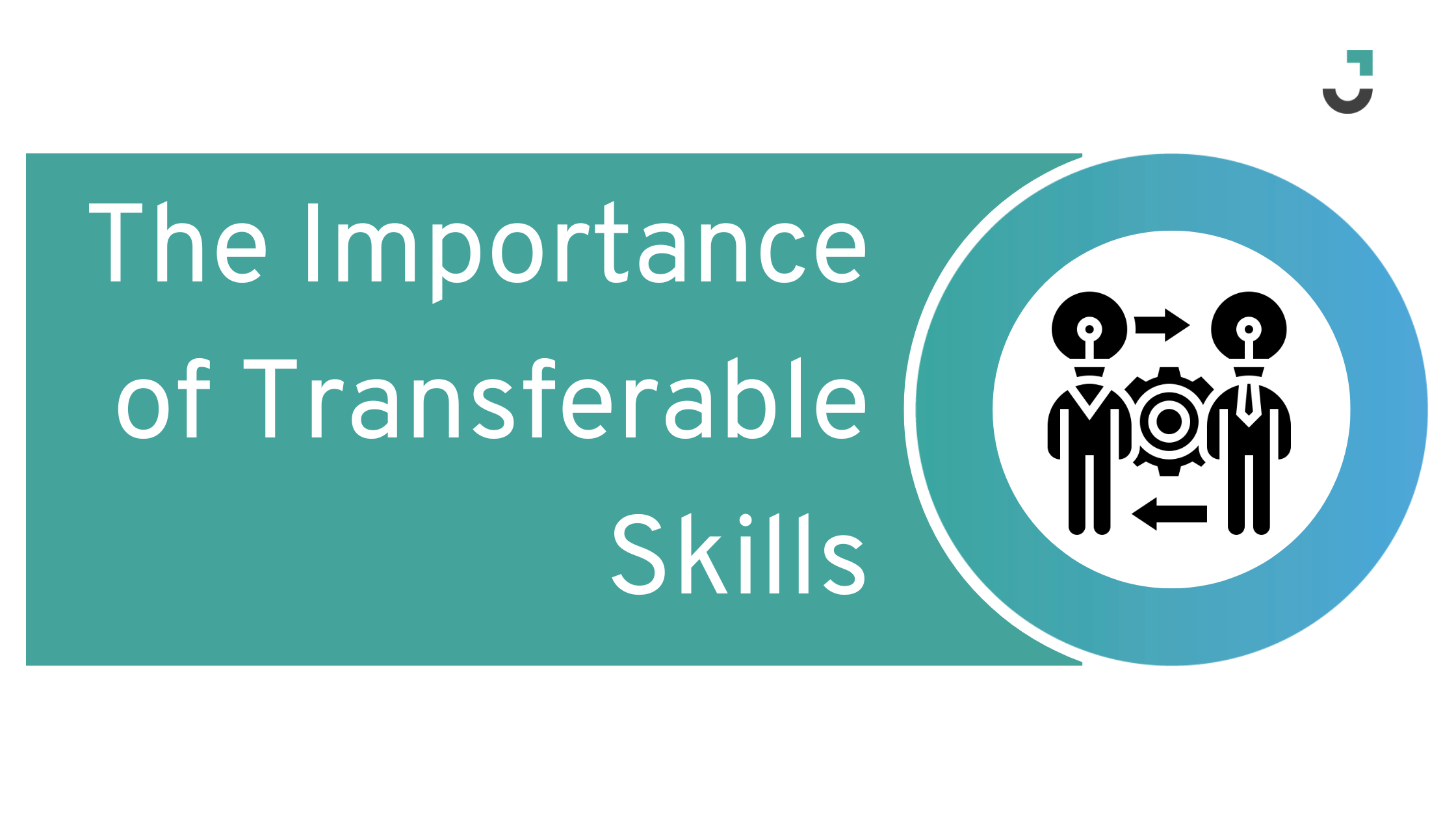Don’t panic, reflect
When your employment world gets turned upside down, it can often feel like there's no hope and your universe is about to implode. This is natural to feel, but remember that it’s not actually the end of the world. Yohannes shared that he used this initial time to reflect and think about where he wanted to go from there—what passions did he have in the past that he could potentially rekindle, and most importantly of all, what skills did he have that were fully transferable to that market?
Identify skills
While taking the time to reflect, be sure to look at the experience you have that is transferable—consider all the things you have done in your career, especially those that are applicable across many job occupations. Yohannes explained that he had a good eye for fashion, but during his career, he also learned to be a leader, developed strong communication skills, and was particularly good at problem solving. I recommend researching transferable skills, thinking of scenarios in your career where you demonstrated those specific skills, and then using those as ammunition to sell why you’re suitable for a new job role in a new sector.
Believe in Yourself
“Fortune favors the brave, I am my own marketing, I am my own sales,” says Yohannes. It’s important to recognize that as an individual you are your best salesperson, and you are the marketing behind both your brand and the skills that you have to offer a new employer. It may feel alien to have to sell yourself, but it's the key to both getting others to buy into you and to feel that they want to invest in someone with less conventional background experience in their sector. It’s essential to believe in what you have to offer and to go and really sell it.
Choose a route to opportunity
There are lots of ways to find opportunities on the web, from platforms like LinkedIn to the leading job boards, like Indeed. However, as someone who understands both the algorithms behind these platforms and the applicant tracking systems they use, the likelihood that the AI matching software powering these systems will see you as a match to a job is slim—most likely the software will find the best lookalikes to the job description, which in this case will not be you.
With this in mind, how can you still find an opportunity? This is when it’s time to leverage the contacts that most of us as professionals have established over our careers and find opportunity through word of mouth and referral recommendation.
It takes two
“If we only ever hire the same, we will only ever be the same as everyone else,” explains Yohannes. This is why hiring people from outside a company's traditional experience is also a chance to hire fresh eyes that can offer a new and exciting perspective to their job role, which can even be tactically advantageous and provide companies with a competitive advantage. And I am compelled to agree with him.
However, all of this is in vain if the hirer isn’t willing to broaden their view and horizons—it takes two in this scenario. It takes a well-presented candidate, with great and valuable transferable skills, who finds an employer who is willing to take a chance on a “wild card” hire—who could either be an unearthed gem or a misuse of time and investment. That’s the risk and reward delta here.
Yohannes joined Caldwell Intellectual Property Law, a law firm in Boston. Upon some research, it turns out that they are the fastest-growing law firm in America according to the Inc. 5000 list, which suggests that they are in need of more talent and may explain why they were willing to take a chance on a hire who lacked the direct experience. However, according to feedback, Yohannes is indeed proving to be a great hire for them, and they continue to grow as a firm at a great pace.
A bird in the hand
Yohannes got an interview with his current employer within the first month of being unemployed from the fashion industry and he was extremely fortunate to have such a quick rebound into another industry. However, knowing that it may not always go like that, my advice is: if you get an offer for a job that’s reasonable in another sector, take the bird in the hand. Even if the pay and benefits are less than desirable, this is a steppingstone for you to transition into another industry and a way for you to get the valuable experience on your resume in order for you to grow and progress in that industry.
Conclusion
I personally feel that Yohannes’ story is such a fantastic example of what to do when the job market closes on you in your sector. In the short time I had to interview him, I learned that his parents had moved to the U.S. from Ethiopia in the 1970’s—completely penniless and looking for opportunity. As someone with almost 20 years in the recruitment industry, I have seen employees like Yohannes before—their cultural background and upbringing makes them resourceful and relentless as their parents faced some of the toughest challenges regarding work and opportunity that most of us couldn’t even imagine. Listening to his compelling story and tenacity made me want to share his lessons and strategies for others to learn from as well.
If you ever find yourself displaced from your traditional occupational field, go over the above points and look to apply them to your new job search as I’m confident they will enhance your chances of success. The key thing to remember is that your life's work and experience have given you transferable skills. Simply identify what they are, and then apply them in “new terrains” as Yohannes so eloquently put it. You have a lot more to offer employers in other sectors than you may initially realize.
Original Article Found Here
Original Author: Arran Stewart, Chief Visionary Officer and Co-founder of Job.com
Job.com is a digital recruitment innovator with a unique perspective: Delivering technology and capabilities that shake up the market by bringing together a data-driven approach based in AI and machine learning with high-level, human-capital-delivered solutions, designed to efficiently attract and retain the right talent and provide consumer-level user experiences throughout the hiring process.


